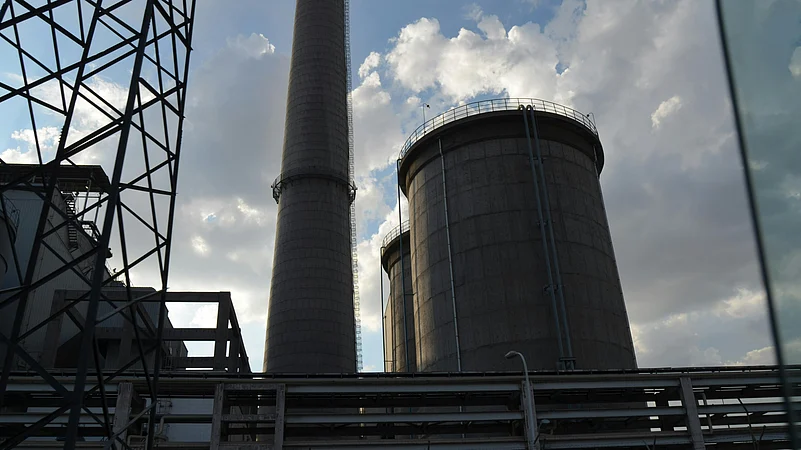
Battery storage trials at coal plants aim to stabilise grid amid solar surge.
NTPC leads pilot, capturing excess energy for evening demand and cost savings.
Broader energy storage market evolving, with merchant BESS becoming profitable in 2024.
India plans to test the installation of battery storage systems at some coal power plants, as the country struggles with integrating massive solar capacity while maintaining a steady electricity supply, an advisor to the Power Ministry told Reuters.
The move is being planned considering the country’s current power grid landscape where thermal plants are expected to reduce output in the daytime as solar energy powers the grid with electricity and electricity supply and demand must be balanced in real time. But it is expected to maintain power capacity in evening hours when the solar generation ends. Thermal plants are not designed to start and stop suddenly since doing so is costly, wastes fuel and wears down machinery. That’s the challenge India is targeting with introduction of battery storage systems so that it can absorb excess solar power and ensure a steady power supply through thermal plants by dispatching it to the grid at a later point.
“At times there are only two choices. Either you shut down the coal plant (during excess solar generation) or lose the thermal capacity in the evening, which we don’t want,” CEA chairman Ghanshyam Prasad told Reuters on the sidelines of the PowerGen India 2025 event in New Delhi.
“We are just trying this as an experiment,” he said, adding that the top coal power generator NTPC had been tasked with testing this at some plants and given funding support.
The batteries would allow the coal plants to capture excess energy and dispatch it to the grid at a later point when needed, allowing the plants to operate at a stable rate, saving costs and extending their lives, Prasad said.
The Central Electricity Authority (CEA) has been working on guidelines for coal-based power plants and technical minimum load requirements as the country rapidly expands renewable energy capacity.
According to a 2021 report by the International Energy Agency (IEA), India's coal power capacity is expected to plateau in 2030 and the solar capacity could reach 800 GW by 2040. The power generation share of coal and solar power would converge by 2040, thereby, renewable energy sources (RES) is set to emerge as important generator of electricity in India.
Recently, NTPC floated a tender for setting up of 1.7 GW of battery storage across 11 coal plants.
Batteries Beyond Coal Plants
In addition to the coal-plant battery trials, India’s entire energy storage landscape is evolving with batteries now taking the center stage due to their commercially viable and profitable aspect in power markets.
According to Ember report, battery energy storage systems operating without fixed contracts which reserve power during low-demand periods and sell it when prices spike, are known as merchant Battery Energy Storage Systems (BESS). The merchant BESS recorded their first-ever profitability in 2024 due to declining battery costs and increasing market volatility.




























